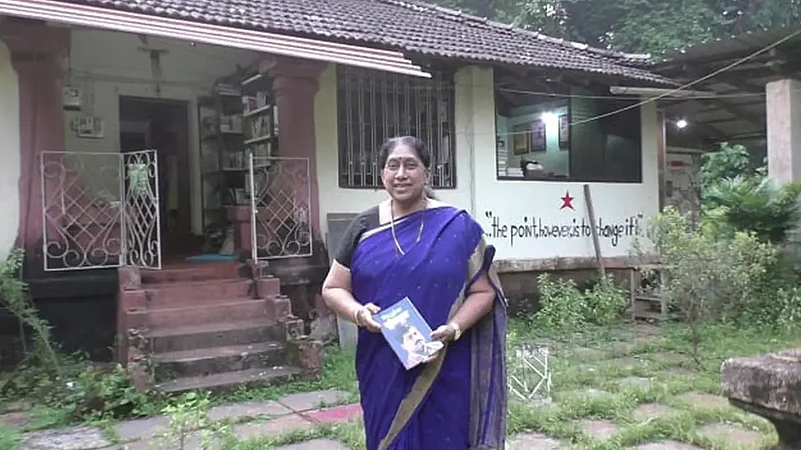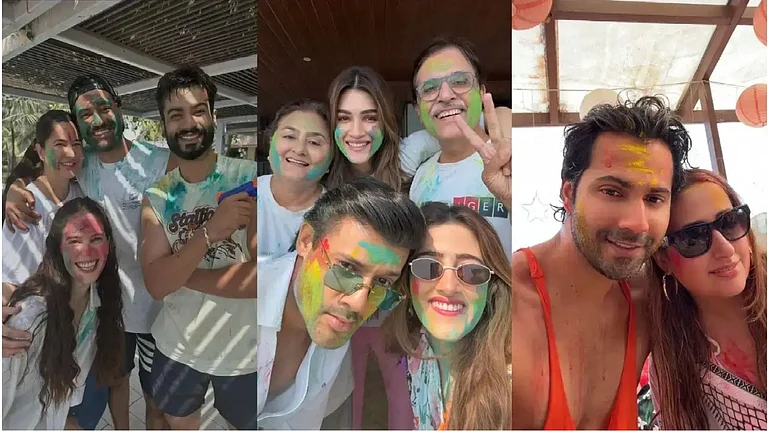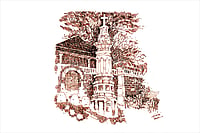Between 2016-2017, one paralytic stroke felled two victims in Goa. Well-known poet, writer and former BJP MLA Vishnu Wagh was one. The other was Konkani, the state’s official language.
That year, as Wagh lay speechless, his body contorted from paralysis and his once-broad torso and belly covered in a mesh of wires, pipes and other medical appendage, the small universe of Konkani literature also turned paraplegic.
The stroke had rendered Wagh silent, but out on the streets, his collection of provocative Konkani poems titled Sudhirsukta (Shudras’ Hymns) had carved a split in Konkani literary camps, exposing Goa’s caste fissures.
Published by Apurbai Prakashan, a local publishing house headed by Hema Naik with nearly 1,200 titles to its credit, Wagh’s Sudhirsukta challenged and lyrically raged against the overwhelming social dominance of Goa’s influential Goud Saraswat Brahmin (GSB) caste. Wagh belonged to the Bahujan Samaj, a collective of non-Brahmin castes.
Prolonged ill-health led to Wagh’s death in 2019, but his looming spectre, his publisher Hema Naik’s dogged resolve and the import of Sudhirsukta’s poetry continues to hound the Konkani literary-scape in Goa five years since.
In 2017, Wagh’s book was shortlisted for one of the 21 state government-backed Goa Konkani Akademi literature awards. The awards were scrapped that year by the then chief minister, late Manohar Parrikar, incidentally also a GSB, and have not been instituted since.
Vasant Sawant, member of the Akademi’s executive board, tells Outlook that the awards had been stalled since “one of the awardees”—Wagh in this case—attracted controversy. “Right now, we are facing a shortage of funds as a result of which the awards have not been re-instituted,” he said.
While the awards were scrapped, the state administration under Parrikar had also slapped an FIR against Wagh and Hema under sections 293 (sale of obscene objects) and 294 (obscenity) of the IPC.

Hema insists she does not regret publishing a single word from the collection. “Freedom of expression of writers is a non-negotiable entity. I am a writer myself and choose to fight a legal battle that was imposed on me,” she tells Outlook.
As a youngster, Hema had participated in the often-violent agitation seeking to make Konkani the state’s official language. She launched Apurbai Prakashan, whose first title Rann Sundari written by her husband and noted Konkani author Pundalik Naik, was published in 1976.
Hema in some ways is an aberration to the GSB caste caucus and believes in challenging the current status quo for social justice. “GSBs inherit a major chunk of state resources and have enjoyed unquestioned social capital for generations. Challenging the status quo is a virtue of the masses that have toiled for generations and always got a raw deal. GSBs or whoever is in power positions need to understand this. Bahujans, Dalits and Adivasis cannot be denied their history and belongingness to this state and language,” Hema says.
She also scoffs at the allegations that Wagh’s poems (excerpts below) took raunchy pot-shots at the GSB community, who control Goa’s economic, political and social sinews.
Chance
I had been fondling her boobs
When suddenly
My babe tightly gripped my hand
And babbled in my ears
If only you were ours
We’d have put you
On our heads and danced
(translation by Joao Roque Literary Journal)
Another verse questions the banishment of non-Brahmins from the garbhagriha (sanctum sanctorum) of venerated Hindu temples in Goa, where only Brahmins and their sub caste groups are allowed access.
We don’t want your garbhagriha
Which is lit with lamps of arrogance
And those of discrimination
***
Not just your garbhagriha
We reject your temples
We don’t even want your sterile god
Who gasps for breath
In your garbhagriha
(translation by Kaustubh Naik)
There are others like poet Sanjiv Verenkar, jury member in the Akademi’s award committee, who leaked into public domain the tussle within the literary body over the shortlisting of Sudhirsukta for the state award, who sport a different nuance.
Freedom of expression should be sacrosanct in the publishing space, Verenkar said, but added that to use a sexual relationship with a woman as a medium to slam her caste later (in the poem Chance), was not in “good taste”.
Verenkar also says that while there were several poems in Sudhirsukta which were fine examples of craft, for a government body to honour a book with content which slanders a particular caste was not correct.
“The poems are critical of a particular community and had potential to stoke communal tension. Poets are free to write what they want and there should be no compulsion on it, but a government agency shouldn’t endorse such vulgar, reckless writing,” Verenkar says.
(This appeared in the print edition as "Verse and Valour")























